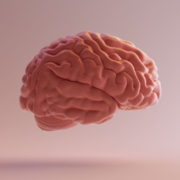Is This the Key to Slowing Aging? NAD and the Mitochondrial Theory of Aging
Aging has long confounded scientists and philosophers alike. Why and how cells age is the key to understanding how to reverse the aging process and help patients live longer fuller lives. A new theory, first discovered by Professor Denham Harman [1], known as the “Mitochondrial Theory of Aging” proposes that dysfunctional mitochondria, the small energy factories of our cells, hold the key to understanding the aging process.
Mitochondria are the powerhouses of energy production within our cells. They produce the energy molecule ATP, which acts as the carrier for cellular energy metabolism throughout the body. A critical component of mitochondrial health and longevity is the molecule, Nicotinamide adenine dinucleotide, or NAD+. NAD+ plays several key roles in proper mitochondrial functioning, and its decrease with age has been shown to correlate with mitochondrial degeneration and subsequent drop in ATP energy production.
As part of the electron transport chain (ETC), NAD+ is directly involved in the production of ATP within mitochondria. However, NAD+ also has other functions outside the electron transport chain that are equally important to the health of the mitochondria. These other functions are currently areas of intense research as understanding these processes may hold the key to unlocking the aging conundrum. Specifically, new research into a protein called SIRT1 may be one such key.
SIRT1, NAD+ and Aging
The SIRT1 complex is a critical nuclear signaling molecule that regulates the health and proper functioning of our mitochondria. NAD+ is the main cofactor in SIRT1 enzyme complex [2]. The majority of the genes responsible for the creation of the component parts of the electron transport chain are encoded in the nucleus of the cell [3]. Here NAD+, along with SIRT1, play a critical role in that they are responsible for the turning on of the very genes that encode the protein complexes that make up the ETC [4].
As we age the pool of available NAD+ diminishes and so does the effectiveness of SIRT1. With SIRT1 functioning at lowered capacity, the gene signaling and subsequent ETC complex production go down. With lowered ETC functioning, fewer ATP is produced and energy levels throughout the body go down. At the same time, more ROS (reactive oxygen species) are produced which accelerates cell damage and decay. The mitochondria begin to die off and eventual total cell death occurs.
New studies on raising NAD+ levels show that this process of cell degeneration and eventual death can be reversed by increasing the available nuclear NAD+ pool. A recent mouse study conducted by Dr. Patricia Gomes of Harvard University showed that the negative effects of decreased mitochondrial functioning could be reversed with the one-week oral administration of NMN, a precursor to NAD+ in the body [5]. Interestingly, calorie restriction also increased NAD+ and SIRT1 activity and showed similar effects at reversing the damage to the mitochondrial ETC [6].
Oral supplementation with NAD+ and NAD+ precursors upregulates SIRT1 activity and reverses mitochondrial damage (and subsequent ROS production), which are the key drivers of cellular aging and death. Currently, the most convincing studies in this area are being conducted in mice, but clinical human use of oral NAD+ supplementation confirms more globally all the positive effects noted in these mouse studies. Patients reporting increased energy, stamina, and feelings of well-being, and decreases in fatigue and muscle soreness all correlate with these preliminary animal studies.
With the passage of time, aging is something that all life on earth experiences. However, with new advances in science from the mitochondrial theories of aging and the use of NAD+ supplementation to strengthen and support our mitochondrial health, perhaps we can increase our longevity and lead longer, healthier, more fit lives long into the future.
About Dr. Iwanicki
Dr. Mark Iwanicki is a board-certified Naturopathic Doctor and Acupuncturist, and a co-founder here at Innovative Medicine. After serving as Chief Operating Officer for the company for 7 years, Mark decided to return to school to pursue a clinical doctoral degree in Naturopathic Medicine and a Masters in Acupuncture at NCNM. For the past 5 years, Dr. Iwanicki has spent his time studying both allopathic and western medical interventions and modalities as well as natural and holistic approaches to health and wellness. He spent 6 months on an intensive Cardiology and Pulmonary medicine internship at the Center of Natural Medicine with Dr. Martin Milner. He also spent 6 months interning with Dr. Amy Bader, a world expert in detoxification, drainage, and constitutional homeopathy. While in school, Dr. Iwanicki won a North America wide student case writing scholarship with NDNR and had his case on paroxysmal kinesigenic dyskinesia published in the journal. He also won the Paul C. Bragg Naturopathic student scholarship contest for his essay on the importance of diet and nutrition in a holistic health care practice.
Disclaimer: The statements made in this article have not been evaluated by the Food and Drug Administration. Any products or treatments mentioned are not intended to diagnose, treat, cure, or prevent any disease. Please consult a licensed medical practitioner for medical advice.
At Innovative Medicine, we believe in transparency. We want you to know that we may participate in affiliate advertising programs pertaining to products mentioned herein.
See how we can help you restore complete health of body, mind & spirit.
Join our mailing list and receive exclusive offers + information!







Leave a Reply
Want to join the discussion?Feel free to contribute!